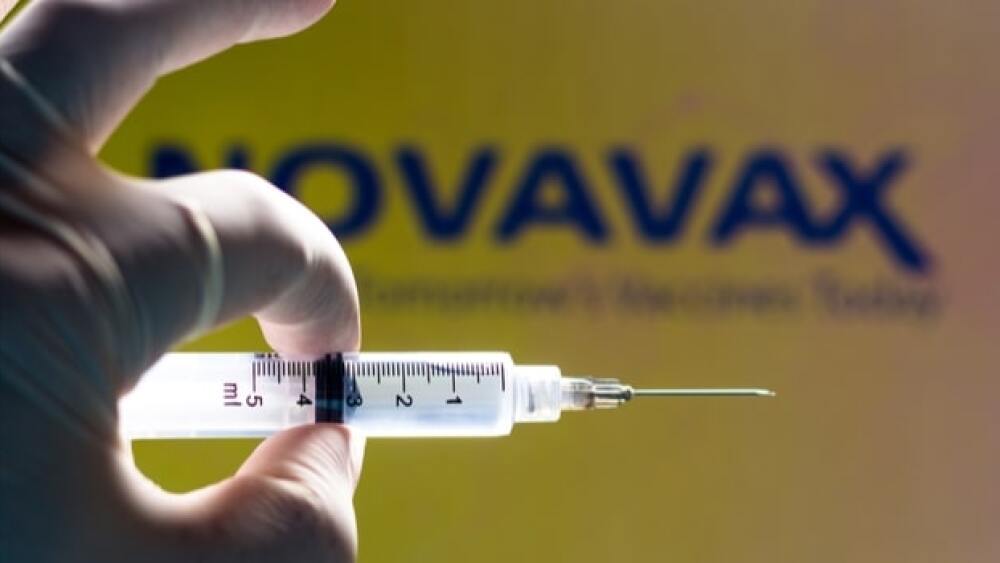Novavax is having problems getting its COVID-19 vaccine to the finish line. Shares plunged more than 23% in premarket trading today after reports that it is having manufacturing problems.
rafapress/Shutterstock
Gaithersburg, Maryland - based Novavax is reportedly having problems getting its COVID-19 vaccine to the finish line. Shares plunged more than 23% in premarket trading today after reports that it is having manufacturing problems.
The company, however, responded in a press release, stating, “Novavax confirms our confidence in our ability to deliver high-quality vaccine. Further, we underscore our ongoing commitment to the stringent standards of production and manufacturing for our recombinant nanoparticle protein-based COVID-19 vaccine candidate with Matrix-M adjuvant.”
Novavax said they have made significant progress in its global manufacturing network in the past 18 months and are expected to produce 150 million doses per month by the end of the fourth quarter. This is via a partnership with the Serum Institute of India, a wholly owned manufacturing plant in the Czech Republic, manufacturing deals in South Korea by SK bioscience and Takeda in Japan, and additional manufacturing deals globally.
In addition to an expected submission to the U.S. Food and Drug Administration (FDA), it has ongoing rolling submissions in the UK, Europe, Canada, Australia and New Zealand, which is expected to wrap in the next few weeks and has already made submissions in India, Indonesia and The Philippines in addition to an Emergency Use Listing (EUL) with the World Health Organization.
“We are confident that our vaccine will soon play a significant role in the global COVID-19 vaccine arsenal, differentiated by its potential to help address two major issues slowing the world’s ability to end the pandemic: global distribution challenges and vaccine hesitancy,” said Stanley C. Erck, President and Chief Executive Officer of Novavax.
A Politico report cites Novavax delays as potentially shorting the international vaccine consortium COVAX of one billion doses. The U.S. government invested $1.6 billion in Novavax in 2020, but, according to the report, “has consistently run into production problems. The methods it used to test the purity of the vaccine have fallen short of regulators’ standards and the company has not been able to prove that it can produce a shot that is consistently up to snuff, according to multiple people familiar with Novavax’s difficulties.”
All of the people who spoke with Politico are anonymous.
Although the FDA has negotiated purity standards with each vaccine manufacturer in a June 2020 guidance, the general standard is 90%. According to Politico’s sources, Novavax has struggled to come close to that, with one claiming they tend to be around 70%. “Low purity levels increase the chance that contaminants or unnecessary substances are in the final product, rendering the vaccine less effective or introducing the chance that patients could react to unknown ingredients,” Politico wrote.
Krishna Udayakumar, director of the Duke Global Health Innovation Center, said, “COVAX continues to be challenged for adequate supply … in that context, Novavax’s manufacturing challenges and delays have been massively disruptive.”
According to reports, COVAX is already behind its planned supply and Novavax delays will only make it worse. COVAX’s target for October is 700 million doses, and to date had shipped 371 million.
Novavax’s Senior Vice President of Investor Relations and Corporate Affairs, Silvia Taylor, told Politico that the company’s analytical testing methods have been “validated,” although there are no indications if the FDA has signed off on them. Taylor did say Novavax expects to file for Emergency Use Authorization with the FDA by the end of the year.
“The vaccine development and regulatory submission processes are highly complex and often require years to advance to the point where we are now,” Taylor said. “We will fulfill all of our committed doses both in the U.S. and globally.”
Although about two-thirds of eligible people in the U.S. have been vaccinated using the Moderna, Pfizer-BioNTech or Johnson & Johnson vaccines, only about 36% of the world has been vaccinated. In Africa, only 4.4% have been vaccinated, and some African countries, such as Nigeria and Uganda, are only 1% vaccinated.





